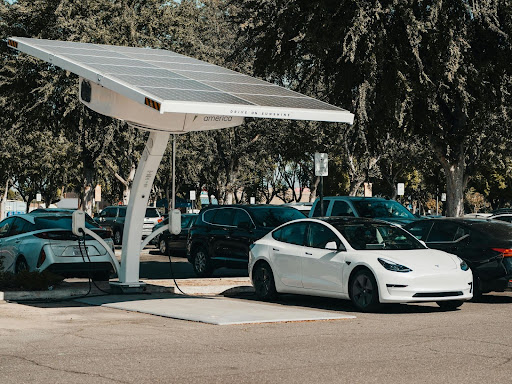
Image credit
The automotive industry, with its current global value of just under $4.5 billion and a projected CAGR of 5.66% from 2024 to 2032, is a significant economic force. This vast sector, with millions of vehicles on the roads at any given time, is also a hotbed of technological innovation, constantly striving for better results and pushing the boundaries of what is possible.
With this in mind, let’s examine some of the most common tech trends taking the automotive industry by storm and fueling change to bring more capable vehicles to drivers worldwide.
Digital Twins
Imagine a world where you can transform a physical asset into a digital one, such as a vehicle. This is the revolutionary potential of digital twin technology. By creating a digital twin asset, the automotive industry can significantly boost productivity and sales, ushering in a new era of efficiency and innovation.
A digital twin is a replica, but digitally, specifically automotive digital twin technology, allows manufacturers to simulate and test designs and features to see how they work and what you can expect when building the buildings. It can also enable a more extensive range of testing for more cost-effective methods of experimentation, troubleshooting, and more.
Electric Vehicles
Electric vehicles are not just a passing trend; they are here to stay and are continuously evolving. As technology advances, so does the capability of electric cars and how fast they can travel. Most major manufacturers are investing heavily in electric vehicles, and by 2030, over 50% of cars in Europe are expected to be electric, marking a significant shift in the automotive industry.
Electric vehicles have proven to be a game-changer, not just for the environment but also for consumers. The adaptability and evolution of current technology, from the first electric vehicles to the modern autos on the road today, assure us that we haven’t seen the full scope of EV capabilities yet. This continuous evolution is a testament to the resilience and adaptability of the automotive industry, providing reassurance about the future of automotive technology.
Self Driving Vehicles
No longer confined to the realm of science fiction, self-driving vehicles are becoming a reality. While fully self-driving vehicles are not yet on the roads, many manufacturers are offering cars with autonomous features that assist in driving. The future of fully autonomous vehicles is on the horizon, with Mercedes-Benz leading the market in bringing these vehicles to consumers.
Alternative Fuels
Despite the rise and seeming domination of electric vehicles in the automotive industry, other fuel methods are being developed and tested to reduce the reliance on fossil fuels to power vehicles. So-called e-fuels or greener fuels such as e-methane, e-kerosine, and e-methanol, which are produced as a result of synthesizing CO2 emissions, have been approved for use post-2035 by the European Commission, Providing they don’t have any emissions and greener alternatives to other fuel options.
